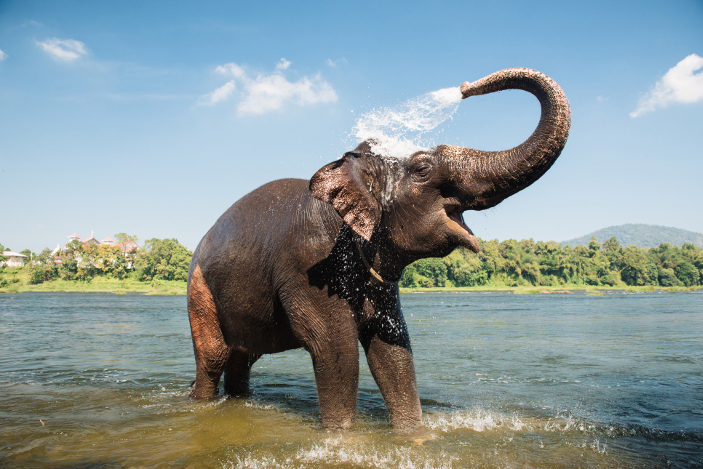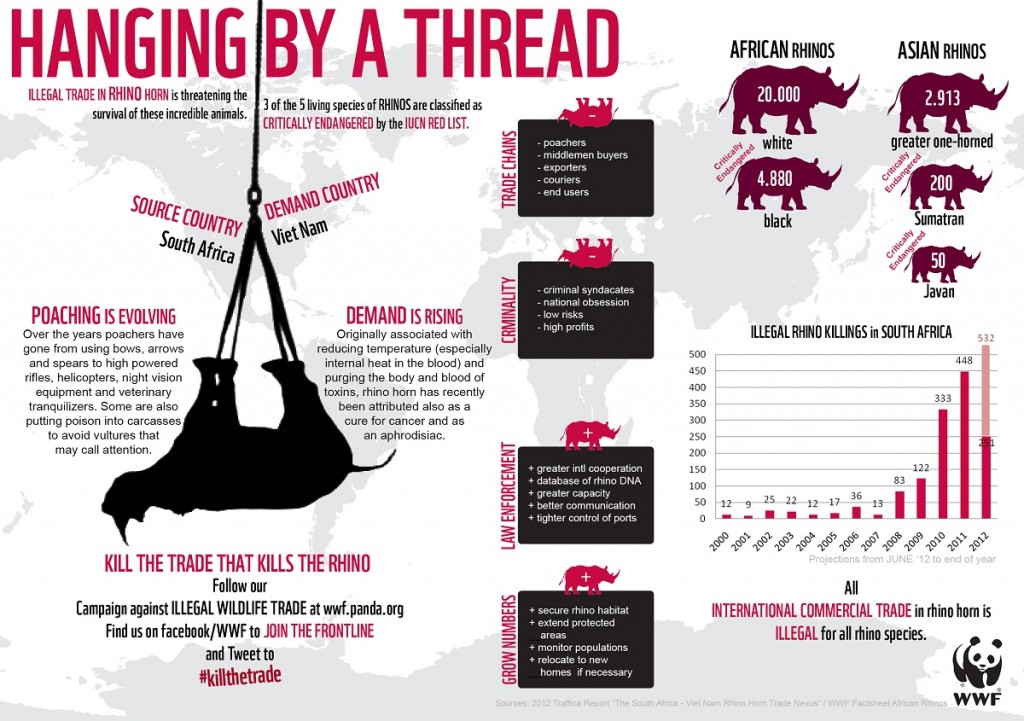Wildlife trafficking needs to be a policy priority in Asia
This year’s World Environment Day on June 5 puts the spotlight on the illegal trade in wildlife, calling for greater public awareness, public engagement, and public mobilization will be required, according to the United Nations Environment Programme (UNEP) “in the efforts to put an end to this very damaging trade.”
To raise global awareness on wildlife conservation, this year’s World Environment Day theme is “Go wild for life – zero tolerance for the illegal wildlife trade.”
The year’s theme encourages people to celebrate all those species under threat and take action of your own to help safeguard them for future generations. This can be about animals or plants that are threatened within your local area as well as at the national or global level.
The wildlife trafficking situation is particularly worse in Asia, the destination for most of the ivory taken from 20,000 to 25,000 elephants, and the horns of more than 1,200 rhinos killed in Africa every year. Demand in the region is driven by fast-growing middle and upper classes with an appetite for exotic pets, decor, food and fashion.
“The illegal wildlife trade undermines our ability to meet the 2030 Sustainable Development Agenda adopted last year. Ivory from a poached elephant is worth about US$21,000 (S$29,000) a kg while a living elephant can generate more than US$1.6 million in economic activity. The illegal wildlife trade also has serious negative impacts on biodiversity, leading to the extinction of species and damage to habitat” according to UNEP.
“Given the size of the market for wildlife in Asia, it is important that political statements in the region are followed up with concrete actions, and that the illegal wildlife trade is treated as a serious organised crime like drug trafficking, human trafficking and smuggling, terrorism and arms smuggling” UNEP added.

UN Secretary-General Ban Ki-moon, in his message on World Environment Day, focused on individual and institutional efforts to break the cycle illegal trade in wildlife.
The booming illegal trade in wildlife products is eroding Earth’s precious biodiversity, robbing us of our natural heritage and driving whole species to the brink of extinction. The killing and smuggling is also undermining economies and ecosystems, fuelling organized crime, and feeding corruption and insecurity across the globe.
Wildlife crime endangers iconic elephants, rhinos, tigers, gorillas and sea turtles. In 2011, a subspecies of Java rhino went extinct in Vietnam, while the last western black rhinos vanished from Cameroon the same year. Great apes have disappeared from Gambia, Burkina Faso, Benin and Togo, and other countries could quickly follow. Lesser-known victims include helmeted hornbills and pangolins as well as wild orchids and timbers like Rosewood – flowers and timber are also considered wildlife, he added.
“Wildlife is an integral part of our biosphere. It is not only essential for healthy ecosystems but also key to peace and sustainable development. Many communities depend on wildlife trade, and tourism related to wildlife, for their livelihoods. An estimated one billion people rely on bush meat for subsistence,” said Irina Bokova, Director-General of UNESCO, in her WED message.
World Environment Day is observed every year on June 5. This day is celebrated to raise to global awareness so that some positive environmental action could be taken to protect nature and the planet Earth.

6 ways you can save wildlife
More people need to understand the damage this illicit business is doing to our environment, livelihoods, communities and security. We must change our habits and behaviour so that demand for illegal wildlife products falls. More awareness and action pushes governments and international bodies to introduce and enforce tougher laws and combat those still willing to break them.
Here are 6 ways — almost everyone can do one or more of them—to help make the world a friendlier place for wild creatures.
1. Speak Up: Share your passion for wildlife conservation with your family. Tell your friends how they can help. Ask everyone you know to pledge to do what they can to stop wildlife trafficking.
2. Adopt – From wild animals to wild places, there’s an option for everyone. Get together with classmates to adopt an animal from a wildlife conservation organization such as World Wildlife Fund (WWF). Symbolic adoptions help fund organizations.
3. Provide Nesting Sites And Shelter – Development by humans has not only destroyed areas where wildlife searches for food, it has also deprived birds, animals and insects of places to live and raise their young. One way we can all compensate for this loss is to replace some of these lost nesting and resting sites such as birdhouse.
4. Reduce, reuse, recycle – A recent report published by the U.N. Environment Programme (UNEP) says plastic waste causes $13 billion in damage every year to marine life. Reduce the amount of materials and energy you consume by buying fewer prepackaged goods, driving in an efficient manner. Reuse and recyle items as much as you can.
5. Detect And Disarm Wildlife “Traps” – Litter and improperly disposed-of refuse can trap or injure wildlife. Plastic bags can also trap and suffocate some kinds of creatures, as can open containers of paints, motor oil, and other liquid chemicals. Remember, when you pick up someone else’s litter, you may be disarming a dangerous trap that otherwise might have cost the life of a wild creature. You might be saving a life.
6. Donate, Volunteer & Vote – If you don’t have money to give, donate your time. Many organizations and zoos have volunteer programs. You can help clean beaches, rescue wild animals or teach visitors. We can be even stronger wildlife helpers when we join forces with other people, political parties and organizations for wildlife preservation. And if your local politicians are not involved in the cause, you can e. Inform your local government as well as your state and federal representatives about any wildlife issues that are of concern to you. Write letters, send e-mails, make telephone calls.

